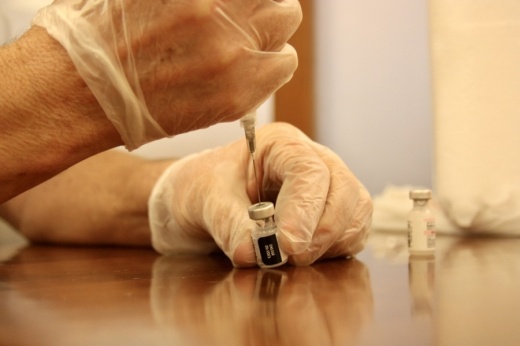Austin Public Health ramped up its vaccine distribution activities in January following its designation as a regional hub by the Texas Department of State Health Services. On Feb. 8, APH said in a social media post it had yet to receive the required second doses of the Moderna vaccine for recipients who had their first shot four weeks prior. Those doses came in Feb. 9, according to a later tweet from APH.
According to new guidance from the Centers for Disease Control and Prevention, the thousands of people who had their first shot in January will be immunized from COVID-19 as long as they receive their second dose sometime in the next two weeks.
Although previous guidance from the FDA and CDC said second doses should be given 21 or 28 days after a first dose for Pfizer and Moderna, respectively, the CDC updated its guidance in late January in response to new trial research showing that second doses could be administered up to 42 days later.
Many vaccine recipients who got their first dose from APH already have a card reminding them to expect a second appointment on a certain date, 21 or 28 days following their first appointments, based on the previous guidance. Some reached out to local officials to express confusion about the process.
“I sympathize with the public, which is incredibly impatient with us,” Commissioner Brigid Shea said at a Feb. 9 meeting of the Travis County Commissioners Court after receiving feedback from constituents. “Frankly, it’s embarrassing to me that Austin-Travis County, which is supposed to be this innovative, technically savvy city, can’t seem to get this right.”
Shea encouraged APH to send communications to all vaccine recipients who are awaiting a second dose to give them an update about the process, an option APH Director Stephanie Hayden-Howard agreed to pursue.
Second doses must be designated as such by DSHS; local vaccine providers are not permitted to draw from first dose allocations for second dose administration.
“We know that folks are very anxious to receive the second dose. We cannot emphasize to you [enough] that we are committed to making sure that the individuals that receive their first dose from Austin Public Health will also receive their second dose from us. As we receive the vaccine, we will be reaching out to schedule those appointments for them and make sure that they are notified,” Hayden-Howard said.
APH said Feb. 9 via social media that it will contact people by email or phone for second-dose appointments, and walk-ups will not be accepted.
Those anticipating a second doses should not be concerned if the wait becomes closer to 42 days than 28, Austin-Travis County Health Authority Mark Escott said. The latest research from Moderna, he said, indicates that immunity from a single dose rises significantly—from 50.8% to 92.1%—after two weeks. A follow-up shot ensures the greatest protection, however.
“This does give us the indication, or at least the reassurance, that lengthening out that second dose out to 42 days is safe and that that the vaccine efficacy continues to improve after that first dose,” Escott said.
According to data on APH's vaccine distribution dashboard, 41 people had received second doses from the entity as of Feb. 6. APH also assisted in the distribution of 660 second doses to clients of CommUnityCare, Capital Metro workers, and some public school teachers and staff at drive-thru event hosted by the county Feb. 6.





